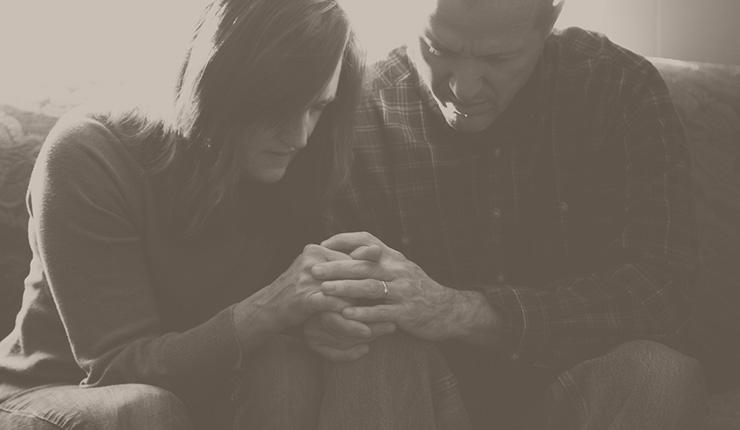Transcript
Let me start by asking, What is menopause? It's important to understand that menopause is natural. It's a normal part of aging. When a woman's menstruation period slows and becomes erratic and eventually stops altogether, and it marks the end of her reproductive years. For most women, this process begins in their mid-forties, and what happens is their ovaries produce less and less estrogen, less progesterone, even less testosterone, all the hormones that her body naturally produces, and her ovaries start releasing eggs, and it ends typically in their mid-fifties, lasting maybe five to ten years. But it's very interesting that in God's wisdom, this time in her life intersects with a major life transition, right? If she's a mother, her children are teenagers, maybe she's caring for her elderly parents, maybe she's launching children, and all the while juggling the demands of work, responsibilities of home life, and even of the social calendar for the entire family.
Well, what are some of the typical symptoms that a woman experiences during menopause? Typically, we talk about a woman who's experiencing hot flashes or lots of mood changes and even a lower sex drive. But the reality is there are so many different ways that a woman responds during menopause. Yes, she can have a hard time moderating her temperature, so she has hot flashes. It can absolutely cause fatigue and energy crashes. It hits her memory as well. She can have difficulty remembering certain things throughout the day. She can lose her mental edge experience, experience brain fog, and even have trouble concentrating, thinking that maybe she has ADHD for the first time in her life. There are many things that are happening for her during this time, and absolutely part of that is going to hit her emotionally as well. She may experience anxiety, depression, ADHD, and maybe struggle with anger and frustration.
But in all reality, knowing all these symptoms and potential symptoms is not all that helpful. The most important thing for you as a husband is to know your wife. And one of the metaphors that I've found most helpful in my own life, but also in others as I talk to them, is comparing menopause to puberty and to adolescence. In many ways, what a woman experiences as she goes through menopause is equally significant. It's an equally significant passage in her life just as it was during adolescence. When a person's emotions and their hormones are changing very rapidly, their body's changing, their appearance even is changing, their identity is changing. And if you're a father of adolescents or have been around adolescents who are just heading into puberty, you can understand how big these changes are and how difficult this passage can be. So more than anything, what you need to understand to be able to encourage and support your wife is that she is suffering, and it can be an incredibly painful and disorienting or confusing time in her life. She may wonder, how much of this is menopause? How much of this has to dojust the emotions and the struggles of my own heart? How much of this is due to the life transition that I'm in with children becoming adults, with aging parents, with all the responsibilities that are on her plate for work and at home?
So what I find very helpful is as you're relating to your wife, identify menopause as a real thing. Talk about it and how your wife is experiencing these changes, right? As a culture, we don't talk, at least not well, about menopause. So acknowledging these changes and challenges with your wife and allowing her to put into words with you how she's experiencing it, what she's going through—that's going to be essential. And don't just talk about menopause as merely a loss or the ending of a period of her life, a very significant period in her life, but also as the opportunity for a new season in life. She will have new opportunities to serve, maybe to mentor, to disciple younger women. She'll have new freedoms, not just losses in her life. And one thing that we know is that when women feel and experience that their husbands are supportive, that their husbands are trying to understand and care for them as they go through this period of change, that they actually do better, that even their symptoms, the ways that they suffer are lessened. They're not as heavy. So your compassion and your grace is essential. It'll help her to see herself graciously as opposed to feeling guilty or feeling shame through these changes. You'll help her, as you accept her, as you encourage and give her grace, she will be able to accept herself even through these hard things. What else can you do? You can encourage her to speak to others, to speak to friends, to other women who are further down the road who can support her, who can give her encouragement along the way as well. And of course, encourage her to talk to her physician. There's help that can be given on many fronts.
Last couple of things that I'll say is more than ever, affirming your wife, praising her will be essential through this challenging time, right? Because it's not just the hormones that are changing within her. No, the outside of her body is changing as well in ways that she wishes it wouldn't be changing. Proverbs 5: 18 says, “Husband, may you rejoice in the wife of your youth.” Now notice it doesn't say, “Husband, rejoice when your wife is a youth.” No, “rejoice in the wife of your youth.” Your wife will always be the wife of your youth, right? And may, as the Song of Song says, may your banner be over your wife—be love.
Now, the last thing I would say is that menopause is a gift to you as a husband. Think about it for a minute. Think about the timing. Now, your wife will probably enter menopause when you're going to be in your midlife, in your middle years, in your forties and in fifties. And typically midlife is a time where we tend to stagnate and even to wrestle with real discouragement at that point—personal failures and disappointments, things in life that we wish would've gone differently. Well, we've had a few of those discouragements, a few of those failures by now, and we're very aware of those things. So menopause for your wife comes into a time as a gift when it's a critical season in your life. We've had maybe 15, 20, 25 years of marriage together, and oftentimes at that point in our lives as men, we're not all that interested in our own personal growth, right? We want to be the experienced ones, we want to be the others that are mentoring and encouraging others. But menopause comes just at the right time by God's design. Menopause comes when we don't want to grow, but where God says, no, here's going to be a new opportunity to care, to grow in genuine love for your wife. It means that God uses this time, this suffering and difficult passage in your wife's life to grow in you things that he desires to grow—love, compassion, genuine care. Please don't be a husband who never opens this gift, this gift from God. Sometimes you'll hear husbands just simply make jokes about menopause or complain or just try to wait it out, and they never realize that this gift is for you to open as well.


